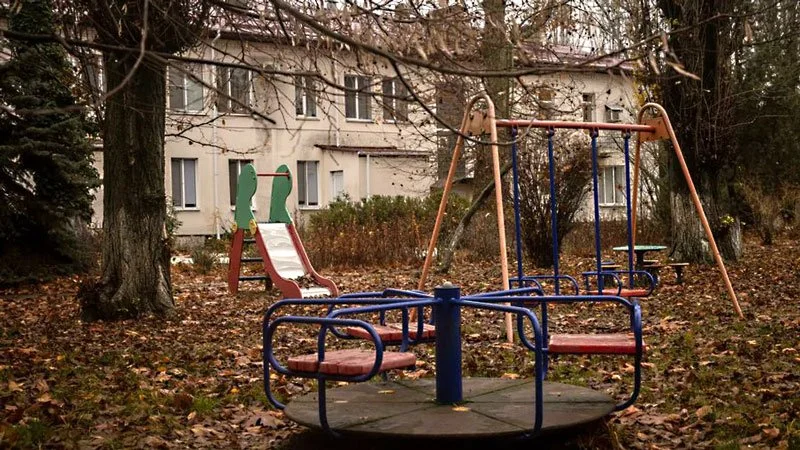By Irwin Redlener, as seen in Newsweek.
The overgrown playground of the Kherson children's house (orphanage) where Russian forces allegedly took 46 children from, is seen on November 27, 2022, in Kherson, Ukraine. Chris McGrath/Getty Images
Last week's much-hyped Trump–Putin summit ended in a cloud of deliberate vagueness: no communiqué, no substantive briefing, no clear commitments. Monday's meeting in the White House with President Volodymyr Zelensky, along with some of our most powerful European leaders, was far more promising, but time will tell if peace between Russia and Ukraine is possible in the near future.
That makes this precisely the moment for Vladimir Putin to demonstrate that he is serious about ending the war in Ukraine.
Just imagine if the Russian leader were to announce not only a commitment to peace but also an unconditional pledge to return the 20,000 Ukrainian children his forces have illegally abducted since the full-scale invasion of February 2022.
And while reporting on the meeting in Alaska made little mention of the illegally abducted children, demands that they be located and returned to Ukraine have been unwavering and essentially universal, crossing the political spectrum in the U.S. from Senators Amy Klobuchar (D-Minn.) to Lindsey Graham (R-S.C.) and Chuck Grassley (R-Iowa); from Representatives Gregory Meeks (D-N.Y.) to Michael McCaul (R-Texas). Just this month, a coalition of 38 countries plus the Council of Europe issued a powerful statement calling on the Russian Federation to "facilitate the return of all unlawfully deported and forcibly transferred Ukrainian children."
The fate of these children, dispersed and unable to communicate with their families in Ukraine, is deeply disturbing to me, as a pediatrician—and especially as a parent and grandparent.
Read the rest of the article in Newsweek.


